There is something beautiful about hunger. Especially when it oozes out of an actor on the screen and sears you bone to soul. You see this hunger in actors who are destined for extraordinary success. In the way their eyes blaze, their bodies bristle, their nerves twitch. The way, they throw themselves into a role and turn it into a pulsing, living thing that sucks you in. This kind of hunger spins straw into gold. It turns a struggling, lanky, persistently flopping actor into Amitabh Bachchan who in 1975 redefined forever the boundaries of a leading actor by devouring four startlingly different films like Deewar, Kabhi Kabhi, Sholay and Mili while we watched in wonder and disbelief. Not knowing that one day the same Amitabh Bachchan would plug Emami antispetic cream.
And yes, hunger that turned a TV actor with bee stung lips and famished amber eyes into Shahrukh Khan. A Shahrukh different from the one who is no longer the exception but the rule. Not an outsider but a camp.
Both were once elemental actors who had so much to give to the camera that they could not bank or contain their intensity. You see this intensity in Parwana (1971) when Bachchan, still sporting a bad haircut, pounds a desk and says in a painful rasp how he cannot stand it when the woman he loves is touched by another man. In an instant we were thrown out of the ordinariness of the film into the compelling energy field of an actor who had till now been underused and miscast in secondary roles. We saw this intensity burst forth again in Anand (1971) where once again Bachchan had seething monologues to express conflicting rage and love and desperation and grief when a patient unwittingly becomes a friend dying of a terminal disease. “Baatein karo mujhse!” is a plea and a command that he shouts after Rajesh Khanna’s Anand has gasped his last. We knew then that we were onto something.
That this man was a contender. The contender arrived without a doubt in Namak Haram (1973) where once again he was a friend grieving angrily and yet stoically for a friend. Interestingly, Bachchan’s success was built primarily on the strength of his monologues, his ability to own the camera when it was looking at him with rapt attention, taking in the blaze of his eyes, his instinctive ability to feel a dialogue with his voice, body and soul. Whether he is in the police station in Zanjeer (1973) and kicks a chair to show Pran who calls the shots or when he pulls Jaya Bhaduri in a morgue packed with dead kids run over by a truck. Be it the conversation with God in Deewar (1975), his poems in Kabhi Kabhi (1975) and Silsila (1981), his conversation with himself before a Band-Aided mirror in Amar Akbar Anthony (1977), or his outburst in Trishul (1978) where he is in an office to make a deal and snaps,“Main yahan paanch laakh ka sauda karne aaya hoon aur meri jeb mein ek phooti kaudi bhi nahin hai.”
My favourite AB moment of that period is when as the crazily drunk Shekhar in Mili (1975), he tries to scare off a neighbour with a growl and an air bite and the line,“Main ek darne ki cheez hoon!” And you know exactly why and when Mili falls in love with this messed up, suicidal man. It is when he crumples in her lap with a killer line,“Bahut dinon baad daant khayi re..maza aa gaya.”
Virtually every director who worked with Bachchan subsequently allowed him alone time with the audience. In the comic set pieces in Namak Halal (1982) and Satte Pe Satta (1982). In painful confessions about life in Shakti (1982) and Kaala Patthar (1979). Not that his silences were not as eloquent. His unspoken love for the shadowy widow in a lamp lit balcony in Sholay (1975) is one of the most poignant moments in cinema. Let us also not forget that far before commercial cinema anointed this hungry outsider as a one man industry, he won a national award for his debut in Saat Hindustani (1969) and won rave reviews for his turn as a mute ensemble actor in Reshma Aur Shera (1971). In every role, big or small that he got before he began to get tailor made roles, you saw an actor burning to get out of a box. Someone who could not be overlooked. Jaya Bachchan said a few years ago on a talk show that both Bachchan and Shahrukh Khan have something extraordinary.
This quality is not just talent. There have been better actors than them but how many of them have consumed our imagination like they did when they first started out? Remember Shahrukh Khan in Fauji? In an ensemble cast of some good and some terrible actors, his was the face you could not forget. The floppy hair, the bouncing fireball energy that just chewed up the scenery and everyone in it.
There was an element of insanity in Shahrukh’s earliest movie roles. Whether he was stalking Deepa Sahi in Maya Memsaab (1993), serenading a messed up nation in Oh Darling! Yeh Hai India (1995) or banging his head against a wall to the refrain of, “Mohabbat ho gayi hai mujhe” in Deewana (1992) or screaming his head off in a forest in Darr (1993) or throwing a girl friend off a terrace in Baazigar (1993), he was almost manic in his hunger to show us that he meant business and by God, he was here to stay. There was pain and longing and frightening passion in his performances that at times you felt exhausted just looking at him.
It was in Dilwale Dulhaniya Le Jayenge (1995) that this energy began to be domesticated in the interest of a wider audience connect. From a raw, rebel straining against convention, Shahrukh became the upholder of tradition. The good son. The committed lover. And then in the films that followed, he became a doting husband. A caring father. Today, the fire we first fell in love with has been almost doused out of existence. Instead of the grungy, sweaty, darkly enticing stranger dressed in ill fitting jackets and scruffy shirts, he is now a purveyor of fairness creams, wall paints, tooth pastes and sharp suits.
The mad gleam in his eyes that promised us hell and heaven now has been conquered by market forces. He is no longer a visibly hungry actor. He is a commodity up for consumption. In trying to appeal to award juries and critics and audiences around the world, his directors are confusedly casting him in roles where he is either over-stylised and over-confident or diluted and watered down.
Both Bachchan and Shahrukh Khan began their careers, wanting to be acknowledged as actors, as bonafide players in an industry full of has beens and could have beens. They wanted to be unforgettable, indelible. They wanted us to love them. Lust for them. Mourn them. Root for them. They wanted us to pause, catch our breath and look at them and then never look away. We kept our bargain. They still are compulsively watchable but the edges have worn off and have been rounded off. They are now savvy businessmen running empires and are brand ambassadors who can sell anything under the sun. It is a let down, yes but thank God for the memories. We still have those to remind us just how beautiful pure passion is before it spends itself or sells itself out.
Reema Moudgil is the author of Perfect Eight (http://www.flipkart.com/b/books/perfect-eight-reema-moudgil-book-9380032870?affid=unboxedwri )
This story was carried in her column in http://tlfmagazine.com/






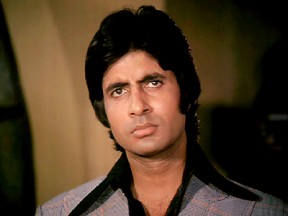
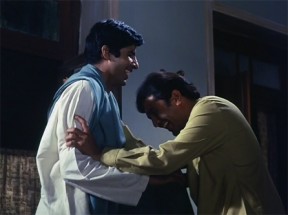
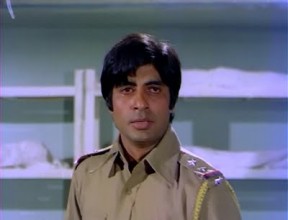
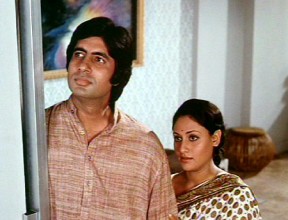

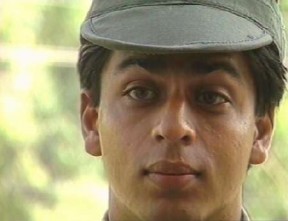
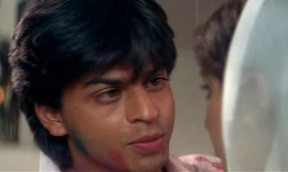
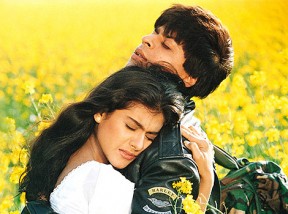
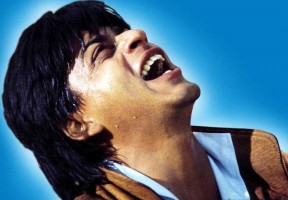
Good one, Reema.
Reema indeed a good one.
your article reminds me of a few lines of a song Ae Bhai Jera Dekh Ke Chalo from Raj Kapoor’s film Mera Naam Joker
” Aur ring master ke kode par
koda jo bookh hai
koda jo paisa hai
koda jo kismat hai
tarah tarah nach ke dekhana yahan parta hai
bar bar roona aur gaana yahan parta hai
hero se eeeeeeeeeeaiiii
hero se joker ban jana parta hai”
I think, say if start climbing a ladder which is fixed outside along with say 25 stroey building, with intension to climb roof top, then I think untill 8 or 10 th floor my eyes will keep looking upwards at the aim ie at the roof. Probably after say after 12 or 15 th floor i will feel like putting a helmet or tie a waist belt to secure myself in an event of a fall. My aim will get distracted and i’ll be more into securing myself out of fear of a fall. Instead of looking upwards, i’ll keep looking downwards. I may do a stupid thing like asking for a parashoot.
I think when SK or AB are doing ads, they are at such a height that they securing themselves in an event of a fall. We all do that. We all make money not to feed ourselves but to secure our future.Who else will better know it other than amitabh bachan wo went bankrupt some yrs back. Then no producer came forward to help him, to say that i’ve made crores out of u.
And Yes that’s true if u wanna be successful then u gotta be hungry.